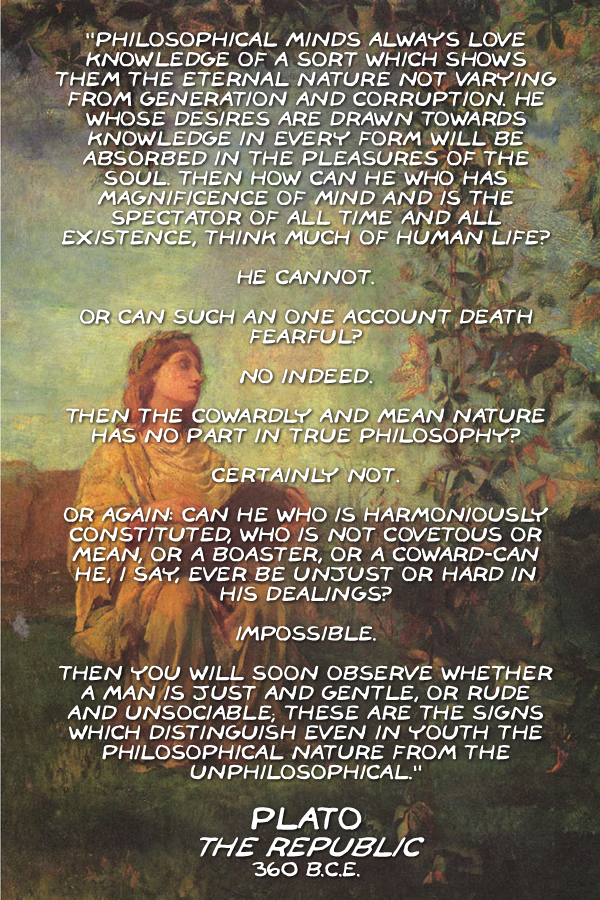Republished by Blog Post Promoter
Tag Archives: philosophy
PEEL AND STICK PHILOSOPHY
Republished by Blog Post Promoter

A BASIC PHILOSOPHY FOR AN IMMORTAL BEING
Republished by Blog Post Promoter
A Basic Philosophy for an Immortal Being
Pain is bad
Pleasure is good
Create your eternity
THE NEXT WORLD
Republished by Blog Post Promoter
PLATO — 348/347 BC) was a Classical Greek philosopher, mathematician, student of Socrates, writer of philosophical dialogues, and founder of the Academy in Athens, the first institution of higher learning in the Western world. Along with his mentor, Socrates, and his student, Aristotle, Plato helped to lay the foundations of Western philosophy and science.[3] In the words of A. N. Whitehead:
“The safest general characterization of the European philosophical tradition is that it consists of a series of footnotes to Plato. I do not mean the systematic scheme of thought which scholars have doubtfully extracted from his writings. I allude to the wealth of general ideas scattered through them.“
Plato’s sophistication as a writer is evident in his Socratic dialogues; thirty-six dialogues and thirteen letters have been ascribed to him. Plato’s writings have been published in several fashions; this has led to several conventions regarding the naming and referencing of Plato’s texts.[5] Plato’s dialogues have been used to teach a range of subjects, including philosophy, logic, ethics, rhetoric, and mathematics. Plato is one of the most important founding figures in Western philosophy. — Wikipedia.org
PHILOSPHICAL MIND: 360 B.C.E.
Republished by Blog Post Promoter
Painting by John LaFarge, American (1835- 1910)
“Philosophical minds always love knowledge of a sort which shows them the eternal nature not varying from generation and corruption. He whose desires are drawn towards knowledge in every form will be absorbed in the pleasures of the soul. Then how can he who has magnificence of mind and is the spectator of all time and all existence, think much of human life?
He cannot.
Or can such an one account death fearful?
No indeed.
Then the cowardly and mean nature has no part in true philosophy?
Certainly not.
Or again: can he who is harmoniously constituted, who is not covetous or mean, or a boaster, or a coward-can he, I say, ever be unjust or hard in his dealings?
Impossible.
Then you will soon observe whether a man is just and gentle, or rude and unsociable; these are the signs which distinguish even in youth the philosophical nature from the unphilosophical. ”
Plato, THE REPUBLIC, 360 BCE




